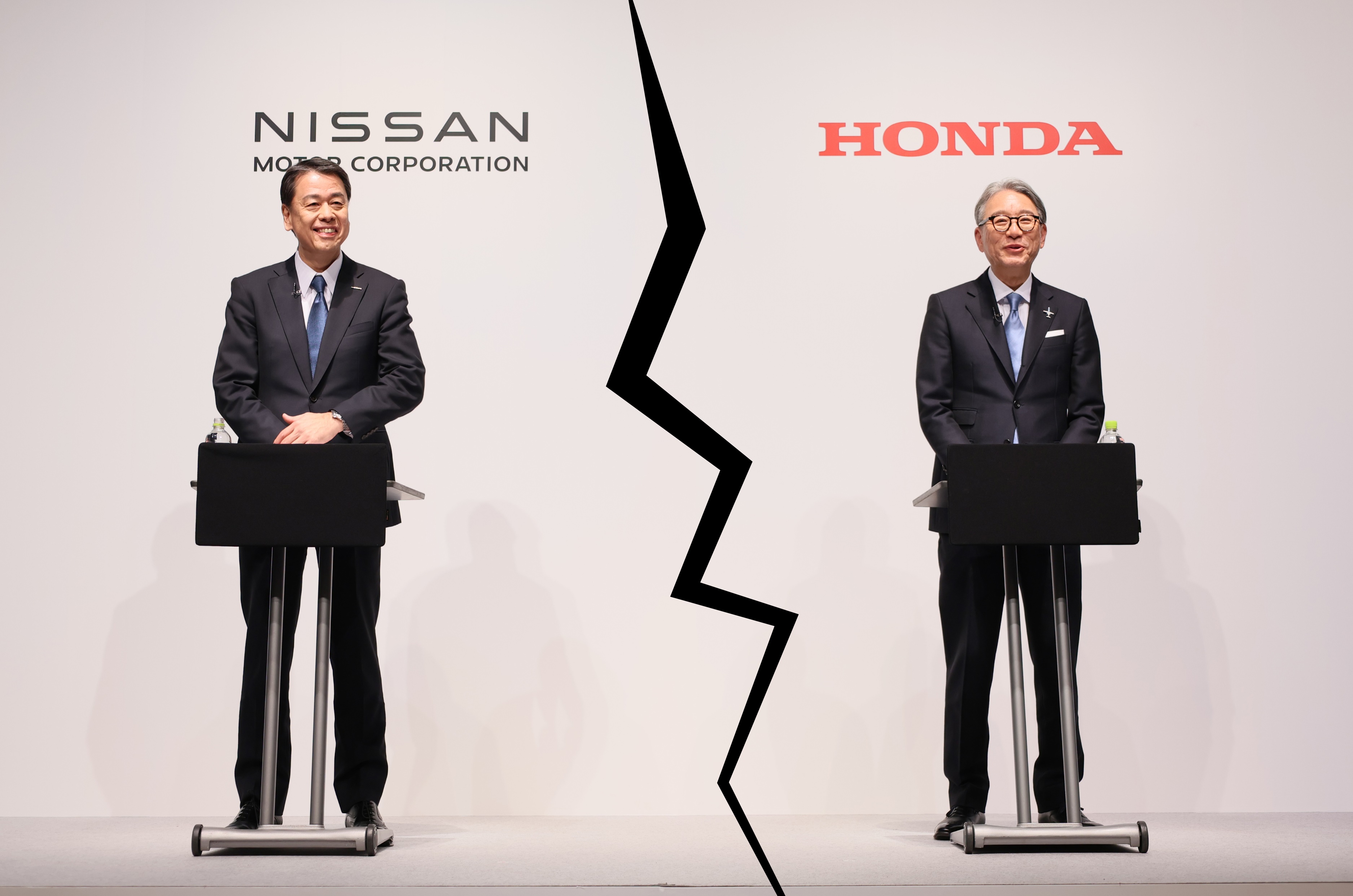
Separate press releases from Honda and Nissan have confirmed that their merger discussions have formally ended on Thursday. The latest development follows our recent report, which highlighted talks became difficult as Honda proposed making Nissan its subsidiary, deviating from their initial plan of forming a holding company. Mitsubishi, previously a part of the discussions, has also released a statement on the same.
- Honda shares on Tokyo Stock Exchange in the green, Nissan stock tanked
- Renault, which holds Nissan stake, looking for a partner to offload shares
They will, however, continue to collaborate on autonomous driving tech and electric vehicles along with Mitsubishi. Keep reading to get an idea of what led to this and what happens next.
Honda-Nissan merger talks explained
The trail of events goes back to March 2024, during which an MoU was signed to develop a common electric powertrain. About five months later in August, a new MoU was agreed upon to develop EVs, especially SDVs (Software-Defined Vehicles) that use artificial intelligence and have ADAS tech. It was only in December that they discussed coming together and forming the world's fourth-largest automaker by sales, after Toyota, Volkswagen and Hyundai.
If it had been established, the JV would have allowed the two to share more resources and take on Chinese EV brands, Tesla amid increasing global competition. After the announcement, Honda shares were in the green on the Tokyo Stock Exchange, while Nissan shares tanked.
What's next?
It should be noted that Nissan is currently part of a global alliance with Renault and Mitsubishi. Renault, which has a 36 percent stake in Nissan, has started speaking to iPhone assembler Foxconn about selling its shares in the Japanese brand. Foxconn was rumoured to have entered into discussions with Renault last year but the latest round of chats reportedly started even before Nissan-Honda merger talks officially collapsed. Other companies like Apple are in the fray too. Additionally, Nissan is independently scouting for a US-based partner, ideally from the tech sector.
Also, read: